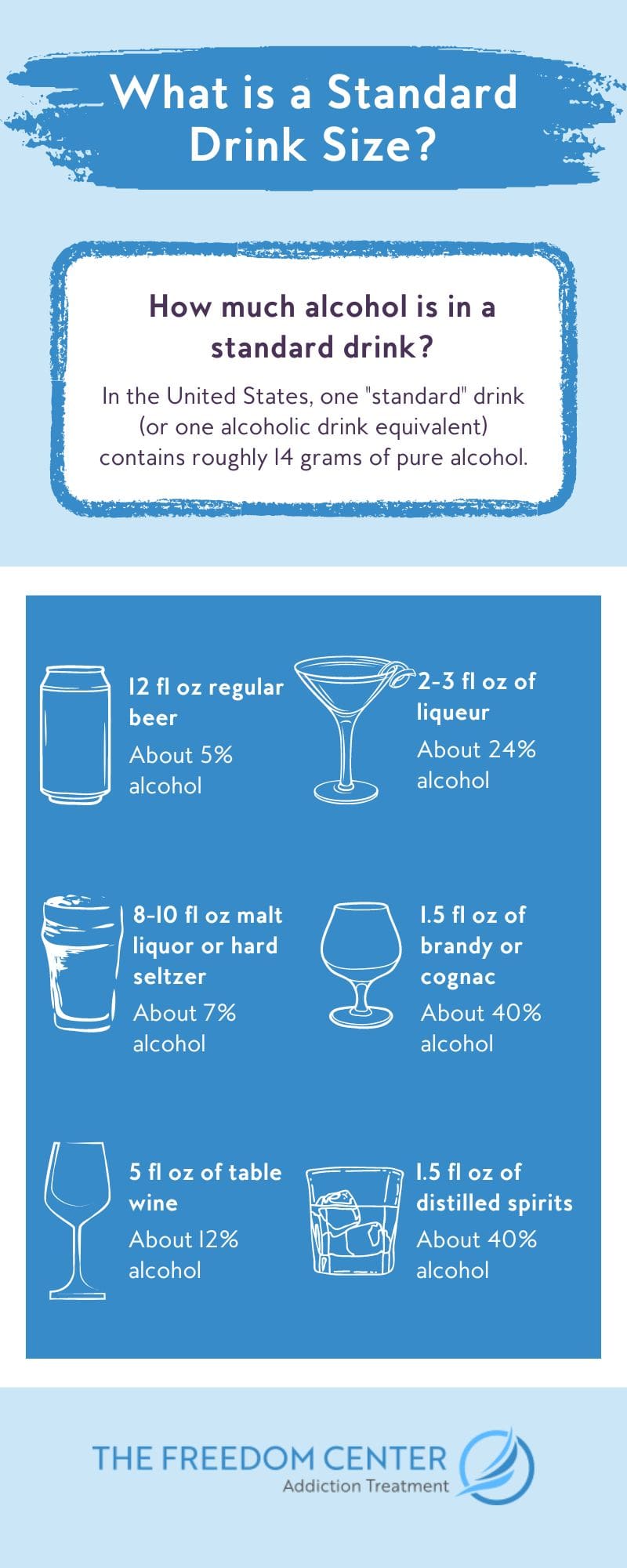While wine has many health benefits when drank in moderation, wine is still an alcoholic beverage. A five-ounce glass of wine contains the same amount of alcohol as a 12-ounce glass of beer. So, when evaluating your alcohol consumption, it’s not just about the type of alcohol you drink but how much alcohol you’re really consuming. After all, excess wine consumption can lead to addiction.

Binge drinking is the most common form of excessive drinking. To understand binge drinking, you need to understand standard drink sizes. For example, a glass of wine has around 12% alcohol by volume. Binge drinking equals to:
- Four or more drinks for women on a single occasion
- Five or more drinks for men on a single occasion
Heavy drinking is defined as consuming:
- Eight or more drinks per week for women
- 15 or more drinks per week for men
Effects of Binge Drinking Wine
Binge drinking affects a person’s ability to make good decisions and think clearly. For example, someone who has been binge drinking may put themselves at risk by driving while intoxicated or engaging in risky sexual behavior without thinking about the consequences first.
Binge drinking commonly leads to serious health problems such as heart disease and liver disease (cirrhosis). Heavy drinkers are also at increased risk for developing mental illnesses like depression or anxiety disorder.
1. Continous Weight Gain
While the occasional glass of wine won’t cause many changes, it’s important to consume it in moderation. One 5-ounce glass of red wine has around 125 calories so a single binge drinking episode can equal to a whopping 625 calories from wine alone. Excessive alcohol consumption can lead to weight gain. It can also trigger other conditions such as heart disease, high blood pressure, and obesity.
2. Heart Problems
While red wine has been said to benefit cardiovascular health, it depends on your drinking habits. Regular wine consumption could lead to atrial fibrillation, an irregular heartbeat. Daily alcohol consumption of any kind can increase your chances of heart problems that could raise more serious complications like a stroke or heart attack.
3. Poor Sleep Patterns
A glass of wine might make you feel sleepy, but consuming wine could actually worsen your sleep patterns and quality of sleep. Drinking alcohol significantly reduces Rapid Eye Movement (REM) sleep, the part of our sleep cycle where we rest the most. When you binge drink wine, you’re likely to go to bed dehydrated, which disrupts your sleep patterns and makes you feel tired even after sleeping for hours. When drinking before bedtime, you’re more likely to have difficulty staying asleep, feel hotter during sleep, and have an overall shorter sleep duration.
4. Increased Risk of Rosacea
Some studies have shown a connection between rosacea and wine drinkers. Moderate drinkers of wine tend to increase the number of blood vessels in their cheeks; this supports the idea of a connection between binge drinking wine and rosacea.
5. Worsen PMS Symptoms
Regular wine consumption could lead to worsened PMS symptoms and potentially cycle changes. Wine causes gut inflammation that can produce hormonal changes that could worsen symptoms of premenstrual syndrome and premenstrual dysphoric disorder.
6. Increased Risk of Cancer and Disease
It doesn’t matter if it’s wine or other types of alcohol. Long-term alcohol consumption increases the risk of cancer, including cancer of the liver, mouth, throat, colon, and rectum. In addition, binge drinking is more likely to cause inflammation of the pancreas, stomach, or liver, potentially leading to acute inflammation and life-threatening conditions like cirrhosis.
Even a single binge drinking session can lead to dangerously low blood sugar levels (hypoglycemia), resulting in seizures or fainting. If hypoglycemia goes untreated, it can lead to seizures, unconsciousness, and even death.
Short- and Long-term Effects of Binge Drinking
Short-term health effects of binge drinking include:
- Slower reaction times
- Dehydration
- Sleepiness
- Depression and anxiety
- Irritability
- Low blood sugar
- Slowed breathing
- Alcohol poisoning
Long-term health effects of binge drinking include:
- High blood pressure
- Mental health problems
- Loss of brain volume
- Weakened immune system
- Heart disease
- Liver problems
- Stroke
- Higher chances of cancers
- Memory problems
- Addiction
While binge drinkers aren’t always dependent on alcohol, people who binge drink are still more likely to develop an alcohol use disorder. Binge drinking is a risky practice that can have long-lasting consequences.
If you or someone you love is dealing with alcohol problems, please know help is available. Alcohol addiction treatment can help people find the tools they need to leave binge drinking in their past and start walking towards recovery.











































